#i waited so long to post this
Explore tagged Tumblr posts
Text


HAPPY IDES OF MARCH EVERYONE! 🗡🗡🗡🗡🗡🗡🗡🗡🗡🗡🗡🗡🗡🗡🗡🗡🗡🗡🗡🗡🗡🗡🗡
#ides of March#professor layton#azran legacy#aurora azran#leon bronev#not a heritage post#i waited so long to post this
455 notes
·
View notes
Note
so i’ve been reading your stories and i can’t take this suffering anymore idk if you’re taking requests but for once i would like to see yn be the dirty mistress, enough of being cheated on now i want us to be the reason they cheat, after million dollar man/traitor/you betrayed me i need justice i want to be a slutty mistress i want to be a homewrecker i want the stolen kisses, hidden touches and the sneaking around i want that forbidden relationship with absolutely zero regret just be the biggest B there is with no shame and ended up on top no angst no more at least not for us (with my girl jimin or yunjin pls 🥺👉👈 you choose) idol x idol!fem!reader just to spice things up a bit like they’re already in a public relationship super shipped by the fans while cheating with reader
HI ANON!! I FINALLY PUT IT OUT. i didn't make it idol x idol, but instead its idol x producer ;) i hope you enjoy it!! you can read it here
9 notes
·
View notes
Text

long way home
#my art#jujutsu kaisen#jjk#yuji itadori#megumi fushiguro#itafushi#fushiita#fanart#jjk fanart#jujutsu kaisen fanart#megumi#yuuji#maybe doing bg studies is the activity of choice while waiting fr leaks its so good 2 zone out n not think fr hours#can't stress about canon if you're busy studying window grates and ac units#this ws gonna start as a more train station-y piece#but as i am wont to do i got swept up during my pinterest dive#brought me further and further in2 small town train crossings and i thought they looked so cute#so i am like. puts itfs there :)#i love the idea of them just . meandering whatever quiet town they end up settling down tgt in post-canon#discovering hidden alleys n meeting all the strays holding hands th entire time....#i am manifesting PEACE and TRANQUILITY goddamn it#also i realized after the last domestic itfs series tht my use of red is at an all time low?????? leaning heavy in2 the green/yellow lately#here also . but i like the lil pops of red i included i think it centers them#happy w this!! happy w my me!! as long as i ignore the fact that indoor environments exist maybe backgrounds arent all tht bad :3
4K notes
·
View notes
Text
satoru’s punishments 🎀🎶
gojo satoru who focuses his infinity around his already-meaty cock so you’re unable to sink that pretty pussy down on him.
satoru is naturally one to discipline, considering his profession as a teacher. he knows clearly what’s right from wrong, and won’t let you off the hook as if you’re one of his students. you think it’s unfair, but if you were to think that gojo satoru cared so much about your incessant little opinions, you’d be called dumb.
your soppy cunt prods against his protected tip, urging your body lower to sheath his fat girth inside, but to no avail.
“satoru,” you mewl, “i said ‘m sorry. really r-really sorry.”
“hm.” he shrugs, one hand cupping your soft butt, and the other around the edge of your waist. his fake efforts to help you when he’s the one preventing you from pleasure is ironic, and it makes you an unspoken amount of angry.
but your anger is overwhelmed by your carnal desires from the sight of him alone, and the only thing floating through your pretty little mind is to get this cock in you.
“please— let me—“
“no.”
he glides your slick cunt across the faux protection, grinding you down so harshly, spreading your sensitive lips and pressing against your clit so harshly it almost hurts. “y’don’t deserve it, you brat.”
“i d— i do, satoru. d-don’t say that !”
he can’t deny how your sweet little mewls and begs for cock get him uncomfortably hard, wanting nothing more than to feel your chubby walls flesh to flesh with his cock. but he knows you’ll never learn, knows that you’ll be just as bad if he lets you off. even if it’s just this once.
“satoru—“
his wet cock slips from under you, falling against his pelvis and plapping against his tummy. you take the chance to lower yourself, rubbing your sore cunt on the smooth length of his cock.
you rock your hips ever so gently, grinding down on visible, but untouchable veins decorating his gorgeous cock. you’re eager to get your cunt off, but ensure your boyfriend doesn’t grow any angrier.
gojo undeniably grinds up just as desperately against your cunt, listening to the tuneful melody your sweet pussy plays for him. short pants leave his dewy lips, holding your chubby hips down firmly and setting his own pace. “shit. brat.”
he loves the look of panic in your eyes when his hips come to a slow, and soon to a stop, leaving you to mindlessly grind on his cock alone. your crying clit tingles from everything that’s led up to this moment.
but—
“did i say you could do that ?”
your movements come to an abrupt stop when his hands splay across your hot thighs, holding you down tight against his pelvis.
“b-but, you were also grindin—“
“yeah, i was. did i say you could ?” he spits, voice laced with poisonous venom that silences you immediately. his eyes are intimidating, not an ounce of forgiveness or pity lays within them.
“not good. what to do with you ?”
he tugs you off his hip, switching your position so that you’re soon under him.
and for the first time, his bare cock slaps against your puffy lips, and nudges at your raw clit. you moan with inexpectance, the mere feel of his cock slapping against your raw cunt nearly has you cumming.
“s a shame y’don’t know how to act right. c’mere.” he motions, pressing down on your shivering shoulder, “come ‘n suck your cock rights back.”
#was an idea / draft from soooo long ago#but i just couldn’t finish the draft so i rewrote everythjng…#i wish dis execution was better but i couldn’t wait to post dis </3#jjk#jjk smut#jujutsu kaisen x reader#jujutsu kaisen smut#gojo smut#gojo jjk#gojo satoru x reader#gojo satoru smut#gojo x reader#jjk gojo#gojou satoru x reader#gojo satoru#satoru gojo#jujutsu gojo#gojo x you#gojo x y/n#satoru x reader#satoru x you#satoru smut#drabbles ⋆⑅˚₊
5K notes
·
View notes
Text




















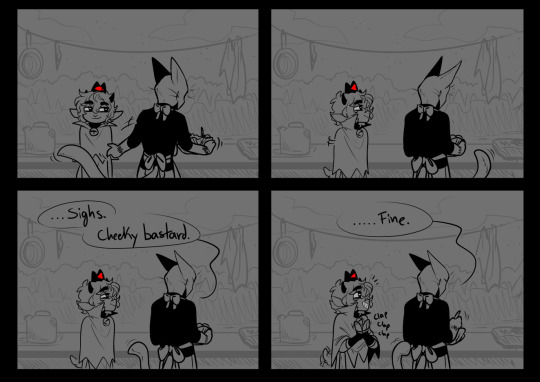



Like The Other Ones
HI YES IM FINALLY DONE HOLY SHIT
OKAY SO this was based off on my own gameplay of COTL, I noticed that everytime Id put food orders in, Narinder would usually be the one to prepare them And honestly? We love a malewife in this house so I dig that for him, ma guy is a skilled cook <3
As I wrote down the dialogue, it just got deeper than I expected SO HERE YALL GO WITH A FULL ASS COMIC ABOUT THEIR RELATIONSHIP, ENJOY!!!!
This shit took me weeks Ill go recharge my soul now brb-
EDIT: I DECIDED TO PUT A UNDERCUT Tab so yall dont have to scroll too much in order to read and see other posts ure welcome 🤼♀️ <3
#cult of the lamb#cult of the lamb comic#cotl#cotl comic#narilamb#cotl narilamb#cult of the lamb narilamb#cotl narinder#cotl lamb#cotl lambert#cotl the lamb#cotl the one who waits#narilamb comic#narinder x lamb#lamb x narinder#cult of the lamb fanart#cotl fanart#comic#comics#myart#art#fanart#skyartworkzzz#i apologize for how LONG this post is there rlly wasnt gonna be any other way man-#ALSO SORRY FOR THE HANDWRITING BTFW I WAS GONNA DO IT TYPED OUT BUT I GOT SO LAZY TO RENDER THE TEXT#So bare with me just this once sobs#Ill use marker brush next time it is less harder to write with compared to a pressure-based brush
5K notes
·
View notes
Text




my longest friend and companion
#persona 3#ryomina#ryoji mochizuki#minato arisato#makoto yuki#pharos#thanatos#lizzy does art#hii everyone long time no post :) been logged out of tumblr for a few months but im still alive and well ^_^#a little something to celebrate one of my favorite days in persona 3 + my favorite pairing...#ryomina is still one of my favorite ships ever because they're so uniquely shaped by their circumstances#death as minato's longest companion throughout life for ten years... always there for him even when death took so much from him#i will forever love death's different forms. pharos. ryoji. thanatos. (not displayed here: nyx avatar)#and i also loved visdev portfolios that have color keys showing rooms with different lighting conditions.#so i smashed those two together and boom :D i made this!!! it was lots of fun :)#not displayed is a fifth image where the room is empty bc minato is long gone (he's in the great seal with ryoji)#i hope everyone has had a very lovely 2024... congrats on making it this far... i cant wait to see what 2025 holds!
967 notes
·
View notes
Text



part 2!!!! [read part one here]
transcript below the cut arranged into stanzas to help show where the rhymes are:
“that’s why they brought gem in? as a failsafe?” as a pawn. we were told to point her at whoever we need gone
“gem won’t hurt her allies. …yet.” the curse she carries will it’s had its eye on her since she lost the other eye she was specially selected for her hunting skill it’s quite the high honor. “wow. how generous.” we try
think about it: why does almost no one fight the curse? “given how fast scott killed skizz last season, i can guess.” [���any pain you spare your friends, you’ll have to suffer worse”?] it’s designed to shut down higher reasoning with stress
#if you still can't see the rhyme scheme try reading it out loud#if that doesn't work uh. idk. can't help you#my art#my poetry#grian#geminitay#smajor1995#bdoubleo100#inthelittlewood#secret life#grian and his terrible horrible no good very bad eldritch coworkers: the sequel#cant wait to post the next part so i can be like 'my three secret life comics. and yes they all rhyme'#this one narratively doesn't work nearly as well as a standalone compared to part 1#however i accidentally went way too hard and could probably upload the middle page + second to last panel as their own separate art pieces#tbh i'm considering putting an explanation of everything below the readmore buuut i don't feel like it atm. :3 later maybe#me and my 20+ life series headcanons i only allude to without explicitly stating don't need to explain ourselves#still experimenting with this webtoon-esque vertical comic style#still not sure i like it#it gets long too quickly#among other things#but it's very easy to read on a phone so
3K notes
·
View notes
Text










Strife Dragonage

anotherrr momentous day in the Strife Dragonage fandom, etc
#dragon age: the veilguard#dragon age the veilguard spoilers#<- this is my spoiler tag!#dragon age: dreadwolf#dragon age 4#the dread wolf rises#da4#dragon age#strife#gpoy#bioware#video games#long post#longpost#OOUGHHH hes so cool#i love his in-game model#now THAT. is an old man#long have i waited for this day#since march 2020 in fact#strife dragonage my beloved#niche/side npc fans where you at#tfw u r in love with a side npc before the game even launches hhhhh#already romanced him in my heart etc#this was the only thing i wanted to crack open the door of my spoiler bunker for hhhhh
727 notes
·
View notes
Note
Do you ever do requests? If so, do you ever plan on drawing some Yandere with the Hantengu clones? :D hope you have a good day/night!!!
Mentioning an unfamiliar name




yes!! I love yanderes.. and these guys.. these guys are such good material...... nods nods..
I'm not sure about requests..I assume you mean drawing requests? I suppose if it REALLY catches my interest enough, I'd do it, but it'd probably just be line art/sketches.
#null rot#yandere kny#yandere demon slayer#kny#kimetsu no yaiba#demon slayer#hantengu#hantengu clones#sekido#karaku#urogi#aizetsu#midori306#YOU ALREADY KNOW THE ANSWER TO THE YANDERE QUESTION MY BELOVED CULT MEMBER#uwaa and i recently checked back on their designs.. THEY HAVE LONG SLANTED EARS DUDE WHAT THE FUCKKK THATS LIKE THE CUTEST EVER#i tend to shitpost and focus on the dere than the yan but thats my mistake!! im sorry cult members.. I'll need scarousal#when calling sekdio. he pretends to ignore you but you can tell he heard you when his ear twitches#He's flabbergasted that you met someone else to begin with. who let you go out without one of them?!#hes too shocked and angry to even properly get upset!!#Karaku loves everything you have to say. less so if its positive abt someone else. still listens tho. listening carefully for details..#he doesnt mind others eyeing you. youre perfect in his eyes. who wouldnt? still.. thats not gonna fly well.#Urogi loves when you seek him out but mentioning someone else... is bc you want to feed him right? ofc! you want to benefit him!#its cause hes your favorite! yeah! youre so sweet!!! ofc he'll get rid of someone for you both!!#Aizetsu's bashful. he feels put on the spot when calling him but hes always hoping you give him affection of some kind. always ready for yo#mentioning someone else was NOT what he wanted and now hes sad.. youre making him sad.. whats so important you had to bring that up?#The thought of anyone else makes him feel so exhausted already.. wont you comfort him instead? he needs you now.. atone for your mistakes#uwaa expressions.. uwaaa aizetsu releasing some of the tension in his brows when hes feeling upset towards you uWAA#i CANT RAMBLE ENOUGH IN THE TAGS SO WAIT FOR THE POST I HAVE IN THE BACK BURNER FROM SOMEONE ELSE WHO ASKED FOR SOMETHING SIMILAR!!!!!!!
1K notes
·
View notes
Text


(you worked yourself to death.)
yeah i wasn’t kidding when i said these would be coming soon. <- haha funny joke marshall. so!! remember when i said that this post would be coming out last weekend? guess whose tablet broke a few days after saying that! so sorry for the delay!! this is long overdue. here’s a link to the drive, as always! everything in this part of the update should be in the miscellaneous folder (outside of the menu icons, which are in the menu folder. wauaua).
unedited versions below the cut, plus some notes. fair warning 90% of this is just ui stuff lol
so! all of this was already done by the time i posted the enemies. the delay isn’t *entirely* because of the tablet issues, i just managed to get distracted by making: even more redraws! i’d say new update soon but after what happened last time i shouldn’t jinx myself. but! almost All of the art for the initial mod release is done!!!! exciting!!!!!!
please be nice to me (silly) this is my first time doing frame by frame animation in… give or take 5 years? i followed the original animations pretty closely, so they don’t look Awful but i am Aware of the jank. i’m not an animator!!! they’re Good Enough for my purposes.
hey did you know that the original teleport map is slightly off center. did you know that. that’s not the case for the redraw for the record but it did make things a little harder. despite that, i think you can tell i was having fun with the dormont part of the map. i would’ve put more detail into the house, but we never really get a more detailed look at it??? and i didn’t want to make assumptions. so that part’s just traced from the original 👍. anyways shoutout to the clocktower being Curved for whatever reason
outside of those, all of the added art is actually just spritework. i didn’t know this at first, but there’s a TON of copies of sprites from the icon set. Basically Everywhere. so those are added now! and should work properly! also added a few sprites that were Missing from my original batch. not going to put them all here, but a few Important ones (which i actually had to make new art for) are the rock paper scissors cheatsheet, the Larger versions of the craft signs (used in the calamité fight and. probably somewhere else idk), and the craft signs for the tutorial kid fight!


aaaand i think that’s it! for stuff from this update. yeah no there’s more coming buddy. my tablet already broke one time this week there’s no way it’s happening twice. i’m not working on portraits Just Yet (though the temptation has been There), but i’ve got the title screens, a few backgrounds, and the ending cgs done! along with a few other assorted cgs sketched out. because im out of my fucking mind. so, uh, see you soon!! enjoy!!



#marshdoodles#isat#in stars and time#huh. wait is this the first spoiler free update????#i should. prolly tag it anyways there are spoilers in the drive#isat spoilers#AGAIN SO SORRY THIS TOOK SO LONG#my charging port on my ipad fucking Rusted#and apparently i’ve been using this thing so much that the pins in one side of the port are completely dshot#so! prolly gonna have to get a new one Soon but it still functions and that’s good enough for me#anyways!! the title screens are actually already in the drive. they’re just getting their own seperate post#also uh. as an aside. thank you guys again for all the support???#seeing people actually Mod my art into the game and make layouts genuinely made my day#what do you mean people like my art. thats insane to me#(also super sorry about the drive being so disorganized. i promise ill make a version that matches the ingame img folder eventually)#isat redraw project#<- I FORGOT TO TAG THIS. OOPS. KNEW I WAS FORGETTING SOMETHING.
450 notes
·
View notes
Text




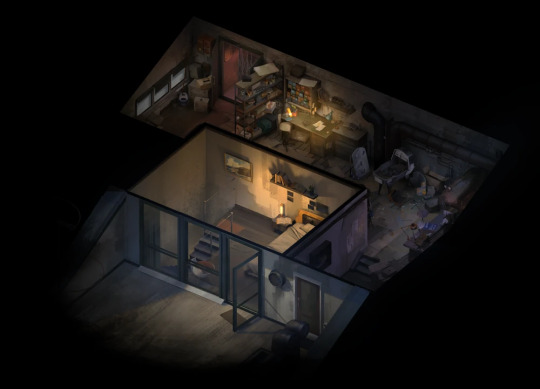
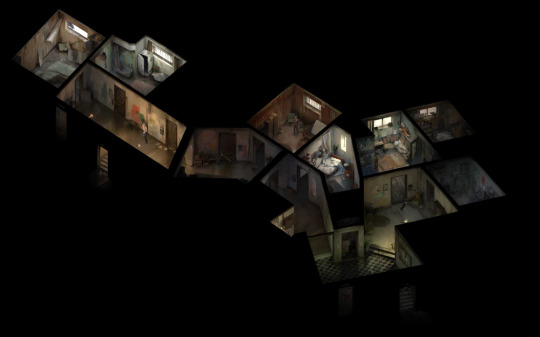
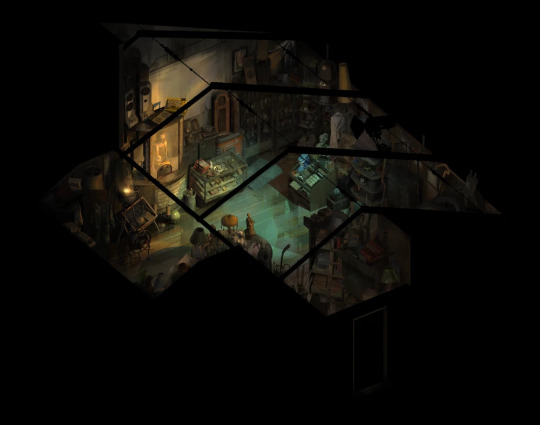





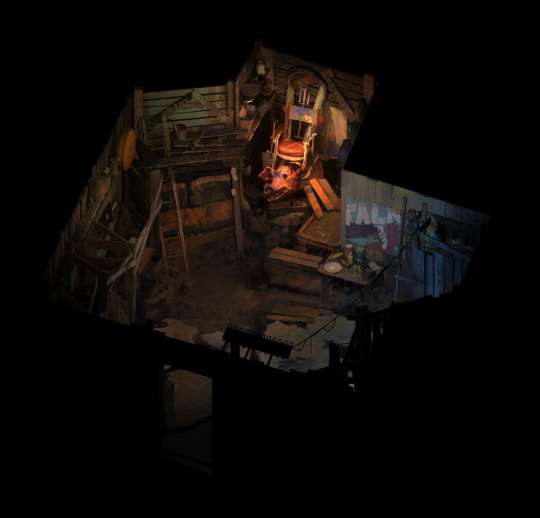



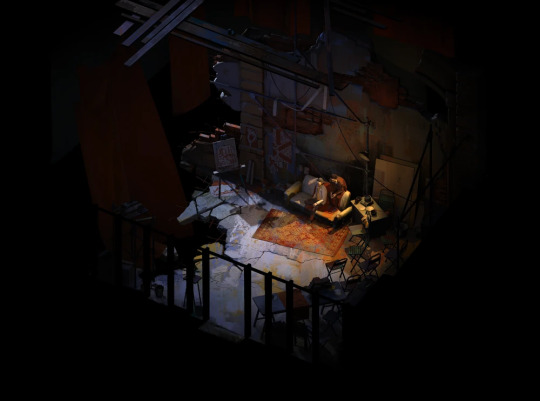




DISCO ELYSIUM - LOCATIONS
#i feel like the maps look a lot freakier when you view them in full empty space included so. posting them here#sorry for putting ev first. truth is i just want to see that thing in my notes preview#wait why is capeside apartments lowkey phallic. ignore that#also. second time im abusing tumblr image limits in the name of this game sorry guys#disco elysium#long post
954 notes
·
View notes
Note
I have encountered issues with JVP in the past in regards to not accommodating kashrut/shabbat observance (and wheelchairs), but previously hasn’t heard about the Mikvah thing. Do you have any sources I can refer to?
Oh boy. Oh boy oh boy oh boy. The noise I made when I saw this ask.
You are probably unaware but I have literally been working on a post on this topic since February. Bless you for asking me about it and giving me a reason to share it. Genuinely. I'm delighted.
Without further ado, now that I've finally finished:
On the JVP Mikveh BS
Some of you are no doubt aware of the Jewish Voice for Peace Mikveh Guide (on JVP’s website here, and here on the Wayback Machine in case that link breaks). You may have seen the post I reblogged about it, you may have seen the post about JVP in general on @is-the-thing-actually-Jewish, or you may have heard about it elsewhere. Or maybe you’ve somehow managed to avoid all knowledge of its existence. (God I wish that were me.) Even if you know about it, even if you’ve scanned through it, you probably haven’t taken the time to read it through properly.
I have.
God help me.
I was originally looking through it to help draft the @is-the-thing-actually-Jewish post back in February, but some terrible combination of horror, indignation, and probably masochism compelled me to do a close reading, so that I could write this analysis and share it with you, dear readers. For those of you who’ve never heard of a mikvah, for those of you who’ve immersed in one, for those of you who’ve studied it intensely—I give you this, the fruit of my suffering, so you too can understand why “Mikveh: A Purification Ritual for Personal and Collective Transformation,” written by Zohar Lev Cunningham and Rebekah Erev for Jewish Voice for Peace has got so many people up in arms.
Brace yourselves. It’s going to be a long journey.
First off, a disclaimer: When I say something is “required in Jewish law” or whatnot, I’m talking about in traditional practice / Torah-observant communities; what is often called “Orthodox.” There’s a wide range of Jewish practice, and what is required in frum (observant) Judaism may not be required in Reform Judaism, etc. Don’t at me.
Second note: I myself am Modern Orthodox, and come from that perspective. I’m also very much more on the rationalist side than the mysticism side of things. I did run this past people from other communities. Still, if I’ve missed or misrepresented something, it was my error and was not meant maliciously.
Third: I am not a rabbi. I am a nerd who likes explaining things and doing deep dives. Again, I may have made errors–please let me know if you spot any, and I’d be happy to discuss them.
Now then. Before we get into the text itself, let’s give some background.
WHAT IS THIS MIKVEH THING ANYWAY?
A mikveh (or mikvah, both they and I switch between spellings; plural mikva’ot) is a Jewish ritual bath, sometimes translated as an immersion pool. Some communities or organizations that run mikva’ot will have a single all-purpose all-purpose, some have separate human- and utensil-pools, and some have separate women’s and men’s pools. The majority of the water in a mikvah has to be “living waters,” i.e. naturally collected rather than from a tap or a bucket. Some natural bodies of water can also be used, such as the ocean and some rivers (ask your local rabbi). The construction is complicated and has extremely detailed requirements. Here’s an example of a modern mikvah:

(By Wikimedia Commons (ויקיגמדון) - Own work, Public Domain, https://commons.wikimedia.org/w/index.php?curid=17373540)
Whoever is being dunked (the scientific term) has to be entirely immersed, and the water has to be in direct contact with all of them. That means no clothes, no makeup, no hair floating on the top of the water, no feet touching the floor, no clenched fists. You have to be completely clean as well, so no dirt is obstructing you from the water.
In essence, a person or thing is immersed in a mikvah to change their/its state from tameh (ritually “impure”) to tahor (ritually “pure”). I use quotes because “pure/impure” aren’t really good translations—they have value judgments that tameh/tahor don’t. There’s nothing wrong with being tameh, you aren’t lesser because you are tameh—it’s just a state one enters when one comes into contact with death and related concepts. (There are also different levels of both.) As a matter of fact, technically speaking even after going to a mikvah basically all people are tameh now—the tum’ah (“impurity,” sort of) that comes from contact with dead humans can only be removed by the Red Heifer offering (see Numbers 19), which we can’t do without the Temple. (Why I say “all” even if you’ve never been to a funeral is a much much longer tangent that I’ll spare you for now.) To quote one of my editors on this, mikvah is “about the natural oscillation between states of ritual purity and impurity. Men go to mikveh after having seminal emissions. Menstruating women go to mikveh on a monthly basis (emphasis added).” It’s just states of life.
In the days of the Temple, one had to be tahor to enter it (the Temple). Archaeologists have found a ton of ancient mikva’ot in Jerusalem that were presumably used by people visiting the Temple, which personally I think is extremely cool.
Nowadays, there are three main traditionally required uses for a mikvah. First, and most importantly, observant married women will go about once a month as part of their niddah (menstrual) cycle, part of practice known as Taharat HaMishpacha, or “Family ‘Purity,’” which at its root is a way to sanctify the relationship between spouses. Until she immerses, a wife and husband cannot resume relations. And not just sex—in some communities, they can’t sleep in the same bed or even have any physical contact at all.
The second use is for conversion—immersion is a central part of the conversion ceremony. One enters the water a gentile, and emerges a Jew.
The third usage is a bit different as it’s not for people. Tableware—plates, cups, etc.—made of certain materials have to be immersed before they can be used. This isn’t what the Guide is about, so I’m not going to go into that as much, but felt remiss if I didn’t mention it was a thing. If you want to know more, Chabad has an article on it here.
Aside from uses required by Jewish law, there is a strong tradition in some communities for men to go to the mikveh just before Yom Kippur, or sometimes every week before the Sabbath, to enter the holiday in as “pure” a state as possible these days. (The things they’re “purifying” from still made them tameh, it just matters less without the Temple.) There is also a strong custom to immerse before one’s wedding. Less traditional communities have also started using mikvah for other transitional moments, such as significant birthdays or remission from cancer. There has recently been an “open mikvah” movement, which “is committed to making mikveh accessible to Jews of all denominations, ages, genders, sexual orientations, and abilities (Rising Tide Network old website, “Why Open Mikvah”).”
To quote others:
No other religious establishment, structure or rite can affect the Jew in this way and, indeed, on such an essential level. —Rebbetzen Rivkah Slonim, Total Immersion, as quoted on Chabad.org
The mikveh is one of the most important parts of a Jewish community. —Kylie Ora Lobell, “What Is a Mikveh?” on Aish.com
How important? According to Rav Moshe Feinstein, one of the great American rabbis of the 20th century, one should build a mikveh before building a synagogue in a town that has neither, and even in a town where there is a mikveh but it’s an inconvenient distance away from the community (Igros Moshe: Choshen Mishpat Chelek 1 Siman 42).
A mikveh is more important than a synagogue.
I’d say that’s pretty important.
Tl;dr: A mikveh is the conduit through which a convert becomes a part of the Jewish people. It is traditionally used to sanctify the relationship between spouses. It was required for people to go to the Temple, back when we still had it. It is extremely central to Jewish practice.
So. What does JVP have to say about it?
THE JVP MIKVEH GUIDE
The document in question is titled “Mikveh: A Purification Ritual for Personal and Collective Transformation,” by Zohar Lev Cunningham and Rebekah Erev. I am largely going to quote directly from the text and then analyze and explain it.
Now let me be clear. I’m not trying to say the authors aren’t Jewish. I’m not saying they’re bad people, or that you should attack them. I am not intending any of this as an ad hominem attack. But given the contents of this document, I do think it is fair to call this appropriative, even if it is of their own culture—in the same way someone can have internalized racism, or twist feminism into being a TERF, I would argue that this is twisting Judaism into paganism. In fact, while I use “appropriation” throughout this document, an extremely useful term that’s been coined recently is “cultural expropriation”--essentially, appropriative actions done by rogue members of the community in question. One example of this would be the Kabbalah Centre in Los Angeles, which is the source of a lot of the Madonna-style “pop Kabbalah.” It was founded by an Orthodox Jewish couple, but it and its followers are widely criticized by most Jewish communities. In much the same way, the Guide is expropriation.
We start off with a note from the authors.
Hello, Welcome to the Simple Mikveh Guide. This work comes out of many years of reclaiming and re-visioning mikveh. The intention of this guide is to acknowledge and give some context to what mikveh is, provide resources related to mainstream understanding of mikveh and also provide alternative mikveh ideas. Blessings for enjoyment of this wonderful, simple Jewish ritual! Zohar Lev Cunningham & Rebekah Erev
This is fairly normal, though “alternative mikveh ideas” is a bit odd to say. I also find “blessings for enjoyment” to be odd phrasing, somewhat reminiscent of the Wiccan “Blessed Be,” but it could be a typo.
The first main section is titled “Intro to Mikveh,” and begins as follows:
Mikveh is an ancient Jewish ritual practice of water immersion, traditionally used for cleansing, purification, and transformation. It's been conventionally used for conversion to Judaism, for brides, and for niddah, the practice of cleansing after menstruation.
This is relatively accurate, and credit where credit is due avoids making niddah out to be patriarchal BS. I do object slightly to “purify” as a translation without further explanation, as I went into above, and “cleansing” for similar reasons—it implies “dirtiness,’ which isn’t really what tum’ah is about. Also, though this is pretty minor, a bride going to the mikveh before her wedding is actually a part of the laws of niddah. I’d also note that they entirely leave out that it was important for going to the Temple in ancient times, though given this is published by JVP I’m not terribly surprised.
For Jews, water signifies the transformative moment from slavery in Egypt, through the parted Red Sea, and into freedom.
On the one hand, I suppose it’s not unreasonable to connect the Red Sea and mikveh, though I think I’d be more likely to hear it the other way around (i.e. “going through the sea was like the people immersing in a mikveh and being ‘cleansed,’ so to speak”). Though they were, rather importantly, not actually immersed in the water. However I don’t think I’d say water as a whole signifies the Splitting of the Sea. In fact, water imagery is more often used to signify the Torah, see for instance Bava Kamma 82a.
There is also a mystical connection to mikveh as a metaphor for the womb of the divine.
A mikveh being like a womb is also not uncommon. It’s found in the Reishis Chochmah (Shia’ar HaAhavah 11,58) and the writing of Rabbi Aryeh Kaplan (The Aryeh Kaplan Anthology, vol 2., p. 382; both as quoted in 50 Mikvahs That Shaped History, by Rabbi Ephraim Meth), see also “The Mikveh’s Significance in Traditional Conversion” by Rabbi Maurice Lamm on myjewishlearning. Filled with water, you float in it, you emerge a new being (at least for conversion); it’s not an absurd comparison to draw. I’m not sure I’ve found anything for the Womb of the Divine specifically, though. (Also, Divine should definitely be capitalized.)
Entering a mikveh is a transformative and healing experience and we have long wondered why it is not available to more people, including the significant trans and queer populations in Jewish communities.
So. I am NOT going to say there’s no problem with homophobia and/or transphobia in Jewish communities. It’s definitely a community issue, and many communities are grappling with it in various ways as we speak. And I’m certainly not going to say the authors didn’t have the experience of not having a mikveh available to them—I don’t know their lives, I’m not going to police their experiences.
However, while Orthodox mikvahs are often still restricted to married women (who by virtue of the community will generally be cis and married to men) and potentially adult men (given the resources and customs, as mentioned above), there are plenty of more liberal mikva’ot these days. Some even explicitly offer rituals for queer events! The list of reasons to go to the mikvah linked up above, for instance, includes:

(Mayyim Hayyim, “Immersion Ceremonies”)
Again, that’s not to say there aren’t issues of queerphobia in the Jewish community, but if you are queer and want to go to the mikvah, there are options out there. If you’re looking, I’ve included some links at the end.
When we make ritual, we are working with the divine forces of presence and intention. The magic of mikveh comes in making contact with water. Contact with water marks a threshold and functions as a portal to bring closer our ritual intention/the world to come.
This is…a weird way to put things. I would say this is the start of the red flags. “When we make ritual,” first of all, is, to quote @the-library-alcove (who helped edit this), “a turn of phrase that is not typically associated with any branch of Jewish practice; we have a lot--a LOT--of rituals, and while it's certainly not completely outside of the realm of Jewish vernacular, the tone here, especially in light of the later sections, starts veering towards the vernacular of neo-paganism.” One might say “make kiddush” (the blessing over wine on Shabbos and holidays) or “make motzi” (the blessing over bread), but not generally “make ritual.”
The next section is titled “Who Gets to Do Mikveh?” Their answer:
Everyone! Mikveh practice is available to all of us as a healing tool at any time.
The healing tool part isn’t the original purpose of mikveh, but there are some who have used it as a part of emotional recovery from something traumatic, by marking a new state of being free from whatever caused it, see for instance Mayyim Hayyim’s list linked above.
The “everyone” bit is a little more complicated. To explain why, we’re going to skip ahead a little. (Some of these quotes will also be analyzed in full later.)
We want to make mikveh practice available as a tool to all Jews and non-Jews who want to heal wounds caused by white supremacy and colonialism. [..] To us, a queer mikveh welcomes anyone, regardless of spiritual background or not. […] Queer mikveh is accessible physically and spiritually to any and all people who are curious about it. You don't have to be a practicing Jew to enter queer mikveh. You don't have to be Jewish. (pg. 2, emphasis added)
Now, I am told there are mikva’ot that allow non-Jews to immerse. I have yet to find them, so I don’t know what rituals they allow non-Jews to do. I also haven’t been able to find any resources on non-Jews being allowed to immerse. I have found quite a few that explicitly prohibit it. If there are any sources you know of, please send them to me! I’d love to see them! But so far everything I have come across has said that mikvah immersion is a closed practice that only Jews can participate in. (Technically, to quote the lovely @etz-ashashiot, any non-Jew can do mikvah…once. And they won’t be non-Jews when they emerge. There is also one very extreme edge-case, which is absolutely not mainstream knowledge or practice, and basically isn’t actually done. You can message me if you’re curious, but it’s really not relevant to this–and even in that case, it is preferable to use a natural mikvah rather than a man-made one.)
If there are any legitimate sources that allow non-Jews to do a mikvah ritual, I would assume said non-Jews would be required to be respectful about it. Unfortunately, this is how the paragraph we began with continues:
Who Gets to Do Mikveh? Everyone! Mikveh practice is available to all of us as a healing tool at any time. You don't need any credentials. Your own wisdom is all the power you need to be a Jewish ritual leader. (emphasis added)
This is where we really go off the rails. First of all, you need more than “wisdom” to lead a Jewish ritual. You need to actually know what you’re doing. You can’t just say “oh you know what I feel like the right thing to do for morning prayers is to pray to the sun, because God created the sun so the sun is worth worshiping, and this is a Jewish ritual I’m doing.” That’s just idolatry. Like straight up I stole that from a midrash (oral tradition) about how humanity went from speaking with God in the Garden of Eden to worshiping idols in the time of Noah (given here by Maimonides; note that it continues for a few paragraphs after the one this link sends you to).
Second of all, this is particularly bad given this guide is explicitly to Jews and non-Jews. As @daughter-of-stories put it when she was going over an earlier draft of this analysis, “they are saying that non-Jews can just declare themselves Jewish ritual leaders based on nothing but their own ‘wisdom.’”
I hope I don’t need to explain why that’s extremely bad and gross?
While we’re on the topic of non-Jews using a mikvah, let’s take a moment to address an accusation commonly mentioned alongside the mikvah guide: that JVP also encourages (or encouraged) self-conversion.
I have been unable to find a separate document where they explicitly said so, or an older version of this document that does. This leads me to believe that either a) the accusation came from a misreading of this document, or b) there was a previous document that contained it which has since been deleted but was not archived in the Wayback Machine. EITHER is possible.
Even in the case that there was no such document, however, I would point out that such a suggestion can be read–intentionally or not–as implicit in this document. This is a guide for mikvah use by both Jews and non-Jews, and includes an idea that non-Jews can perform Jewish rituals on their own without any guidance or even background knowledge, as quoted above. Why would a non-Jew, coming into Jewish practice with very little knowledge, go looking to perform a mikvah ritual?
I would wager that the most well-known purpose of immersing in a mikvah is for the purpose of conversion.
Nowhere in this guide is there any explicit statement that you can do a self-conversion, but it also doesn’t say anywhere that you can’t, or that doing so is an exception to “you don’t need any credentials” or “your own wisdom is all the power you need to be a Jewish ritual leader.” It may not be their intention, but the phrasing clearly leaves it as an option.
Even if this were from a source that one otherwise loved, this would be upsetting and disappointing. The amount of exposure this document is getting may be at least in part because it comes from JVP, but the distress and dismay would be there regardless. If there is further vitriol, it’s only because JVP is often considered a legitimate source by outsiders, if no one else–in other words, by the very people least likely to have the background to know that this document isn’t trustworthy. It’s like the difference between your cousin telling you “the Aztecs were abducted by aliens” versus a mainstream news program like Fox reporting it. Both are frustrating and wrong, but one has significantly more potential harm than the other, and therefore is more likely to get widespread criticism (even if you complain about your cousin online).
On the other hand, as one of my editors pointed out in a moment of dark humor, they do say you don’t have to be Jewish to lead a Jewish ritual, so perhaps that mitigates this issue slightly by taking away a motivation to convert in the first place.
Returning to our document:
We do mikvahs in lakes, rivers, bathtubs, showers, outside in the rain, from teacups, and in our imaginations.
At this point the rails are but a distant memory.
In case you’ve forgotten what I said about this at the beginning of this post (and honestly I wouldn’t blame you, we’re on pg. 9 in my draft of this), there are extremely strict rules about what qualifies as a mikvah. Maimonides’s Mishnah Torah, just about the most comprehensive codex of Jewish law, has eleven chapters on the topic of the mikvah (though that includes immersion in it as well as construction of it). I’m not going to make you read through it, but let’s go through the list in this sentence:
Lakes and rivers: you might be able to use a river or lake as a mikvah, but you need to check with your local rabbinical authority, because not all of them qualify. In general, the waters must gather together naturally, from an underground spring or rainwater. In the latter case, the waters must be stationary rather than flowing. A river that dries up in a drought can’t be used, for instance. (The ocean counts as a spring, for this purpose.)
Bathtubs and showers: No. A man-made mikveh must be built into the ground or as an essential part of a building, unlike most bathtubs, and contain of a minimum of 200 gallons of rainwater, gathered and siphoned in a very particular way so as not to let it legally become “groundwater.” Also, it needs to be something you can immerse in, which a shower is not.
Outside in the rain: No? How would you even do that?? What??
Teacups: Even if you were Thumblina or K’tonton (Jewish Tom Thumb), and could actually immerse your entire body in a teacup, it wouldn’t be a kosher mikvah as a mivkah can’t be portable.
In your imagination: Obviously not, what the heck are you even talking about
We will (unfortunately) be coming back to the teacup thing, but for now suffice it to say most of these are extremely Not A Thing.
Mikveh has been continually practiced since ancient Judaism. It is an offering of unbroken Jewish lineage that we have claimed/reclaimed as our own.
I find the use of “claimed/reclaimed” fascinating here, given this guide is explicitly for non-Jews—who, whether or not they are permitted to use a mikvah, certainly shouldn’t be claiming it as their own—as well as Jews. I find it particularly interesting given the lack of clarity of how much of JVP’s membership is actually Jewish and JVP’s history of encouraging non-Jewish members to post “as Jews.” Kind of telling on yourselves a bit, there.
(Once again, I’m not commenting on the authors themselves, but the organization they represent here and the audience they are speaking to/for.)
We want to make mikveh practice available as a tool to all Jews and non-Jews who want to heal wounds caused by white supremacy and colonialism. We want to make mikveh practice available for healing our bodies, spirits, and the earth.
Setting aside the “Jews and non-Jews” thing, since I talked about that earlier and this is already extremely long, I do want to highlight the end of the paragraph. While there are some modern uses of the mikvah to (sort of) heal the spirit, I haven’t heard of anyone using a mikvah to heal the body—as a general rule Jews don’t tend to do faith healing, though of course some sects are the exception. Healing the earth, however, is absolutely not a use of a mikvah. Mikvah rituals, as we’ve now mentioned several times, are about tahara of a person or an object, and require immersion. You can’t immerse the earth in a mikvah. The earth contains mikva’ot. Healing the earth with a mikvah is a very strange worship (IYKYK).
We acknowledge that not all beings have consistent access to water, including Palestinians.
This is a tragedy, no question. I don't mean to minimize that. However, it is also unrelated to the matter at hand. The Guide also doesn’t give any recommendations on how we can help improve water access, so this lip service is all you get.
A lack of water does not make mikveh practice inaccessible.
Yes, in fact, it does. Without a kosher mikvah of one variety or another one cannot do anything that requires a mikvah. That’s why building a kosher one is so important. I haven’t gone looking for it, but while I’m sure there’s lots (and lots and lots and lots) of Rabbinic responsa out there of what to do in drought situations, you definitely do need water in all but the most extreme cases. If you do not have water, AYLR (Ask Your Local Rabbi)--don’t do whatever this is.
The spirit of water can be present with us if we choose to call for water, so even when water is not physically available to us we can engage in mikveh practice.
This is just straight up avodah zarah (“strange worship,” i.e. idolatry) as far as I can tell. The “spirit of the water”? What? We’re not Babylonians worshiping Tiamat. What source is there for this? Is there a source??
Like all material resources, the ways water is or is not available to us is shaped by our geographic and social locations. The ways we relate to water, what we decide is clean, treyf (dirty), drinkable, bathable, how much we use, how much we save, varies depending on our experiences. We invite you to decide what is clean and holy for your own body and spiritual practice.
This is going to require some breaking down.
To start with, let’s define “treyf.” To quote myjewishlearning, “Treyf (sometimes spelled treif or treyfe) is a Yiddish word used for something that is not kosher [lit. "fit"]. The word treyf is derived from the Hebrew word treifah, which appears several times in the Bible and means 'flesh torn by beasts.' The Torah prohibits eating flesh torn by beasts, and so the word treifah came to stand in for all forbidden foods.”
You may note the lack of the word “dirty” in this definition, or any other value judgments. Myjewishlearning continues, “over time, the words kosher and treyf have been used colloquially beyond the world of food to describe anything that Jews deem fit or unfit.” While this does have something of a value judgment, it’s still not “dirty.” I can’t say why the authors chose to translate the word this way, but…I don’t like it.
Now, when it comes to what is kosher or treyf, food and drink are most certainly not based on “our experiences.” There are entire books on the rules of kashrut; it generally takes years of study to understand all the minutiae. Even as someone who was raised in a kosher household, when I worked as a mashgicha (kosher certification inspector) I needed special training. What is considered kadosh (“sacred” or “holy,” though again that’s not a perfect translation) or tahor is also determined by very strict rules. We don’t just decide things based on “vibes.” That’s not how anything in Jewish practice works.
Water, in fact, is always kosher to drink unless it has bugs or something else treyf in it. And mikvehs aren’t even always what I’d consider “drinkable;” I always wash utensils I’ve brought to the mikvah before I use them.
We come to our next heading: What is Queer Mikveh?
What is Queer Mikveh? To us, a queer mikveh welcomes anyone, regardless of spiritual background or not.
As I’ve said above, I have yet to find a single source (seriously if you have one please send it to me) that says non-Jews can go to a mikvah. As one of my editors for this put it, “to spin appropriation of Jewish closed practices as ‘queer’ is not only icky but deeply disrespectful to actual queer Jews.”
Also, and this is not remotely the point, but “regardless of spiritual background or not” is almost incoherently poor writing.
As Jews in diaspora we want to share and use our ritual practices for healing the land and waters we are visitors on for the liberation of all beings.
I have tried to be semi-professional about this analysis, but. “Jews in the diaspora,” you say. Tell me, JVP, where are we in the diaspora from? Hm? Where are we in diaspora from? Which land do we come from? Which land are we indigenous to, JVP? Do tell.
Returning to the point, I would repeat that mikvah has nothing to do with “healing the land and waters.” It’s ritual purification of whatever is immersed in it. You want to heal the land and waters? Go to your local environmental group, and/or whoever maintains your local land and waters. Pick up trash. Start recycling. Weed invasive species. Call your government and tell them to support green energy. You want liberation for all beings? Fight bigotry—including antisemitism. Judaism believes in action—go act. Appropriating rituals from a closed religion doesn’t liberate anyone.
We have come up with this working definition and welcome feedback!
Oh good, maybe I won’t be yelled at for posting this (she said dubiously).
Queer mikveh is a ritual of Jews in diaspora. We believe the way we work for freedom for all beings is by using the gifts of our ancestors for the greatest good. We bring our rituals as gifts.
I have nothing in particular new to say about this, except that I find the idea of “bringing our rituals as gifts” for anyone to use deeply uncomfortable, given Judaism is a closed religion that strongly discourages non-Jews from joining us, and that has had literal millennia of people appropriating from us.
It acknowledges that our path is to live on lands that are not historically our peoples [sic] and we honor the Indigenous ancestors of the land we live on, doing mikveh as an anti-colonialist ritual for collective and personal liberation.
Again I would love so much for JVP to tell us which lands would historically be our people’s. What land do Jews come from, JVP? What land is it we do have a historical connection to? What land do our Indigenous ancestors come from??
And why does it have to be our path to live on lands other than that one?
Secondly, to quote the lovely @daughter-of-stories again when she was editing this, “Mikveh as anti-colonialism, aside from not being what Mikveh is, kinda implies that you can cleanse the land of the sins of colonialism. So (a) that’s just a weird bastardization of baptism since, mikveh isn’t about cleansing from sin, and (b) so does that mean the colonialism is erased? Now we don’t have to actually deal with how it affects actual indigenous people?”
I’m sure that (b) isn’t their intent, but I will say that once again they don’t give any material suggestions for how to actually liberate any collectives or persons from colonialism in this document, including any links to other pages on their own website*, which surely would have been easy enough. It comes across as very performative.
*I disagree strongly with most of their methods, but at least they are suggesting something.
Queer mikveh is a physical or spiritual space that uses the technologies of water and the Jewish practice of mikveh to mark transitions. Transition to be interpreted by individuals and individual ritual.
I have no idea what the “technologies of water” are. Also usage of a mikvah to mark transitions beyond ritual states is a fairly new innovation, as mentioned above.
Queer mikveh in it's [sic] essence honors the story of the water. The historical stories of the water we immerse in, the stories of our own bodies as water and the future story we vision [sic].
This just sounds like a pagan spinoff of baptism to me, if I’m being honest. Which would be non-Jewish in several ways.
Queer mikveh is accessible physically and spiritually to any and all people who are curious about it. You don't have to be a practicing Jew to enter queer mikveh. You don't have to be Jewish.
First off, once again whether or not non-Jews can use mikvah seems at best extremely iffy. Secondly, accessibility in mikva’ot is, as one of my editors put it, “a continual discussion.” We have records of discussions regarding access for those with physical disabilities going back at least to the 15th century (Shut Mahari Bruna, 106; as quoted in 50 Mikvahs That Shaped History by Rabbi Ephraim Meth), and in the modern era there are mikva’ot that have lifts or other accessibility aids. That said, many mikva’ot, especially older ones, are still not accessible–and many mikva’ot don’t have the money to retrofit or renovate. Mikvah.org’s directory listings (linked at the end of this) notes whether various mikva’ot are accessible, if you are looking for one in your area. If you want to help make mikva’ot more accessible to the disabled, consider donating to an existing mikvah to help them pay for renovations or otherwise (respectfully) getting involved in the community. If you want to help make mikva’ot more accessible for non-Orthodox Jews, try donating to an open mikvah (see link to a map of Rising Tide members at the end of this essay) or other non-Orthodox mikvah.
Queer mikveh is an earth and water honoring ritual.
Not even a little. We do have (or had) rituals that honor the earth or water, at least to an extent–the Simchat Beit HaSho’evah (explanations here and here) was a celebration surrounding water; most of our holidays are harvest festivals to some extent or another; there are a large number of agricultural mitzvahs (though most can only be done in Israel, which I suppose wouldn’t work for JVP). (Note: mitzvahs are commandments and/or good deeds.) Even those, though, aren’t about the water or earth on their own, per se, but rather about honoring them as God’s gift to us. This description of mikvah sounds more Pagan or Wiccan–which is fine, but isn’t Jewish.
Queer mikveh exists whenever a queer person or queers gather to do mikveh. Every person is their own spiritual authority and has the power to create their own ritual for individual or collective healing.
Absolutely, anyone can create their own rituals for anything they want. But it probably won’t be a mikvah ritual, and it probably won’t be Jewish.
Do you know what it’s called when you make up your own ritual and claim that it’s actually a completely valid part of an established closed practice of which you aren’t part? (Remember—this document is aimed just as much at non-Jews as at Jews.)
It’s called appropriation.
With the next section, “Some Ideas for Mikveh Preparation,” we begin page three.
(Yes, we’re only on page three of seven. I’m so sorry.)
The most important part of mikveh preparation is setting an intention.
This isn’t entirely wrong, as you do have to have in mind the intention of fulfilling a mitzvah when you perform one.
Because mikveh is a ritual most used to mark transitions, you can frame your intention in that way.
To quote myself above, “usage of a mikvah to mark transitions beyond ritual states is a fairly new innovation.” I’d hardly say it is mostly used for marking transitions.
You can do journaling or talk with friends to connect with the Jewish month, Jewish holiday, Shabbat, the moon phase, and elements of the season that would support your intention.
If this were a guide for only Jews, or there was some sort of note saying this section was only for Jews, I would have less of a problem. But given neither is true, they are encouraging non-Jews to use the Jewish calendar for what is, from the rest of the descriptions in the Guide, a magical earth healing ritual.
This is 100% straight up appropriation.
The Jewish calendar is Jewish. Marking the new moon and creating a calendar was the first commandment given to us as a people, upon the exodus from Egypt. Nearly all our holidays are (aside from the harvest component, which is based on the Israeli agricultural seasons and required harvest offerings) based on specific parts of Jewish history. Passover celebrates the Exodus and our becoming a nation. Sukkot celebrates the Clouds of Glory that protected us in the desert. Shavuot celebrates being given the Torah.
According to some opinions, non-Jews literally aren’t allowed to keep Shabbat.
If you are a non-Jew and you are basing the collective earth healing ritual you have created under your own spiritual authority around Jewish holidays and calling it “mikvah,” you are appropriating Judaism.
Full stop.
This isn’t even taking into account the generally Pagan/witchy feel of the paragraph, with “moon phases” and “elements of the season.” Again, if you want to be a Pagan be a Pagan, but don’t call it Jewish.
Things only go further downhill with their next suggestion for preparation before you go to the mikvah.
Divination: A lot can be said about divination practices and Judaism.
There certainly is a lot to be said. First and foremost, there’s the fact that divination is forbidden in Judaism.

(Screenshot of Leviticus 19:26 from sefaria.org)
One method of divination they suggest is Tarot, which is a European method of cartomancy that seems to have begun somewhere in the 19th century, though the cards start showing up around the 15th. While early occultists tried to tie it to various older forms of mysticism, including Kabbalah, this was, to put it lightly, complete nonsense. (Disclaimer: this information comes from wikipedia; I’ve already spent so much time researching the mikvah stuff that I do not have the energy or interest to do a deep dive into the origin of Tarot. It isn’t Jewish, the rest is honestly just details.)
I have nothing against Tarot. I think it’s neat! The cards are often lovely! I have a couple of decks myself, and I use them for fun and card games. But divination via tarot is not Jewish. If I do any spreads, I make it very clear to anyone I’m doing it with that it is for fun and/or as a self-reflection tool, not as magic. Because that is extremely not allowed in Judaism.
The authors suggest a few decks to use, one of which is by one of the authors themselves. Another is “The Kabbalah Deck,” which—holy appropriation, Batman!
In case anyone is unaware, Kabbalah (Jewish mysticism) is an extremely closed Jewish practice, even within Judaism. Traditionally it shouldn’t be studied by anyone who hasn’t already studied every other Jewish text (of which there are, I remind you, a lot), because it’s so easy to misinterpret. I mentioned this above briefly when explaining cultural expropriation. Pop Kabbalah (what Madonna does, what you see when they talk about “Ancient Kabbalistic Texts” on shows like Supernatural, the nonsense occultists and New-Agers like to say is “ancient Kabbalistic” whatever, it’s a wide span of appropriative BS) is gross, combining Kabbalah with Tarot is extremely gross. I’m not 100% sure, as the link in the pdf doesn’t work, but I believe they are referring to this deck by Edward Hoffman. For those of you who don’t want to click through, the Amazon description includes this:

(Screenshot from Amazon)
Returning to our text:
Another practice that's been used in Judaism for centuries is bibliomancy. You can use a book you find meaningful (or the Torah) and ask a question. Then, close your eyes, open the book to a page and place your finger down. Interpret the word or sentence you pointed at to help guide you to answer your question.
Bibliomancy with a chumash (Pentateuch) or tanach (Bible) in Jewish magic is kind of a thing, but the tradition of Jewish magic as a whole is very complicated and could be its own entirely different post. This one is already long enough. This usage of bibliomancy is clearly just appropriative new-age BS, though, especially given you can use “[any] book you find meaningful.”
Also, if you aren’t Jewish, please don’t use the Torah for ritual purposes unless you are doing it under very specific circumstances under the laws for B’nei Noach (“Children of Noah,” also called Righteous Gentiles; non-Jews who follow the 7 Noachide Laws).
Sit with your general intention or if you aren't sure, pose a question to the divination tool you are using. "What should be my intention for this mikveh?" "What needs transforming in my life?" "How can I transform my relationship with my body?"
As I hope I’ve made clear, there are very specific times when one uses a mikvah, even with more modern Open Mikvah rituals. You always know what your intention is well before going—to make yourself tahor, or mark a specific event. I’m not here to police how someone prepares mentally before they immerse—meditation is fine, even encouraged. But magic? Like this? That’s not a thing. And given the fact that divination specifically is not only discouraged but forbidden, this section in particular upset a lot of Jews who read it.
Those of us already upset by everything we’ve already covered were not comforted by how the Guide continues.
How to Prepare Physically For Mikveh: Some people like to think about entering the mikveh in the way their body was when they were born. By this we mean naked, without jewelry, with clean fingernails and brushed hair. This framing can be meaningful for many people.
We went into this at the beginning of this essay (about 6500 words ago), but this is in fact how Jewish law mandates one is required to immerse. This is certainly the case in most communities, whether you are immersing due to an obligation (as a married woman or a bride about to be married) or due to custom (as men in post-Temple practice) or due to non-traditional immersion (as someone coming out); wherever on the spectrum of observance one falls (as far as I could find). A mikvah isn’t a bath, it’s not about physical cleanliness—you must first thoroughly clean yourself, clip your nails, and brush your teeth. Nail polish and makeup are removed. There can’t be any barriers between you and the water. Most mikva’ot these days, particularly women’s mikva’ot, have preparation rooms so you can prep on site. When you immerse, you have to submerge completely—your hair can’t be floating above the water, your mouth can’t be pursed tightly, your hands can’t be clenched so the water can’t get to your palms. If you do it wrong, it doesn’t count and you have to do it again. It’s not a “framing,” it’s a ritual practice governed by ritual law.
We suggest you do mikveh in the way you feel comfortable for you and your experience.
This isn’t how this works. If you have a particularly extreme case, you can talk to a rabbi to see if there are any workarounds—for example, if excessive embarrassment would distract you from the ritual, you may be able to wear clothes that are loose enough that the water still makes contact with every millimeter of skin. But you need to consult with someone who knows the minutiae of the laws and requirements so you know if any exceptions or workarounds apply to you. That’s what a rabbi is for. That’s why they need to go to rabbinical school and get ordination. They have to study. That’s why you need to find a rabbi whose knowledge and personality you trust. For someone calling themselves a religious authority in Judaism to say “you can do whatever, no biggie” with such a critical ritual is…I’m not sure what the word I want is.
The idea is to feel vulnerable but also to claim your body as a powerful site of change that has the power to move us close to our now unrecognizable futures.
The idea is to bathe in the living waters and enter a state of taharah. Though that could be an idea you have in mind while you are doing it, I suppose. I could see at least one writer I know of saying something like this to specifically menstrual married (presumably cis) women performing Taharat HaMishpacha (family taharah, see above).
For some people, doing mikveh in drag will feel most vulnerable, with all your make-up and best attire.
Absolutely not a thing. As I said last paragraph, the goal isn’t to feel vulnerable or powerful or anything. It may feel vulnerable or powerful, but that is entirely besides the actual purpose of the ritual. What you get out of it on a personal emotional level has nothing to do with the religious goal of the religious practice.
And if you are wondering how one would submerge oneself in water in full drag, don’t worry, we’ll get there soon.
For some, wearing a cloth around your body until just before you dip is meaningful.
This is just how it’s usually done. Generally one is provided with a bathrobe, and one removes it before entering. You don’t just wander around the building naked. Or the beach, if you’re using the ocean.
If you were born intersex and your genitalia was changed without your consent, thinking about your body as perfect, however you were born, can be loving.
I’m not intersex, so I’m not going to comment on the specifics here. If you are and that’s meaningful to you, more power to you.
We enter a new section, at the top of page 4.
Where To Do Mikveh: There is much midrash around what constitutes a mikveh.
“Midrash” is not the word they want here. The midrash is the non-legal side of the oral tradition, often taking the form of allegory or parable. This is as opposed to the mishna, which is the halachic (legal) side of the oral tradition. They were both written down around the same time, but most midrashim (plural) are in their own books, rather than incorporated in the mishna.
There is, however, a great deal of rabbinic discussion, in the form of mishna, gemara, teshuvot (responsa), legal codices, and various other genres of Jewish writing. More properly this could have just said “there is much discussion around what constitutes a mikveh.”
Most mikvot currently exist in Orthodox synagogues[—]
This is perhaps a minor quibble, but I don’t know that I’d say they’re generally in synagogues. They are frequently associated with a local congregation, but are often in a separate building.
[—]but there is a growing movement to create more diverse and inclusive spaces for mikveh. Mayyim Hayyim is a wonderful resource with a physical body of water mikveh space. Immerse NYC is a newer organization training people of all genders to be mikveh guides. They also work to find gender inclusive spaces for people to do mikveh in NYC.
This is true! Mayyim Hayyim is a wonderful organization I’ve never heard anything bad about, and ImmerseNYC also seems like an excellent organization. Both also only allow Jews (in which group I am including in-process converts) to immerse.
The mikveh guides thing I didn’t explain above, so I’ll take a moment to do so here. Because the rules of immersion are so strict, and because it’s hard to tell if you are completely immersed when you are underwater, most mikva’ot have a guide helping you. Depending on the circumstance and the mikvah, and depending on the patron’s comfort, who and how they do their jobs can differ somewhat. For a woman immersing after niddah, it will usually be another woman who will hold up the towel or bathrobe for you while you get in the water, and will only look from behind it once you are immersed to make sure you are completely submerged. If you are converting, customs vary. Some communities require men to witness the immersion regardless of the convert’s gender, which is very much an ongoing discussion in those communities. Even in those cases, to my knowledge they will only look once the convert is in the water, and there will likely still be a female attendant if the convert is a woman. While there are negative experiences people have had, it is very much an intra-community issue. We’re working on it.
Mikveh can be done in a natural body of water.
Again, this is true, though not all bodies of water work, so AYLR (Ask Your Local Rabbi).
Some people are also making swimming pools holy places of mikveh.
We’ve already explained above why this is nonsense.
In the Mishneh (the book that makes commentary on the torah [sic]) there are arguments as to what constitutes a mikveh and how much water from a spring or well or rainwater must be present.
The main issue in this section is their definition of the Mishneh. As I explained above, the Mishna (same thing, transliteration is not an exact science) is the major compilation of the Oral Torah, the oral tradition that was written down by Rabbi Judah Ha-Nasi so it wouldn’t be lost in the face of exile and assimilation. It’s not so much a commentary on the (Written) Torah as an expansion of it to extrapolate the religious laws we follow. It’s certainly not “the book that makes commentary on the Torah.” We have literally hundreds of books of commentary. That’s probably underestimating. Jews have been around for a long time, and we have been analyzing and discussing the Torah for nearly as long. There are so many commentaries on the Torah.
The second issue is that while there are arguments in the Mishna and Gemara (the oral discussion on the Mishna that was written down even later), they do generally result in a final decision of some sort. Usually whichever side has the majority wins. Variations between communities are still very much a thing, and I can explain why in another post if people are interested, but there usually is a base agreement.
We are of the school that says you decide for yourself what works.
The phrasing they use here makes it sound as though that’s a legitimate opinion in the Mishnah. I cannot emphasize how much that is not the case. While I myself have not finished learning the entire Mishnah, I would be willing to wager a great deal that “whatever works for you” isn’t a stance on any legal matter there. That’s just not how it works. While some modern branches of Judaism may have that as a position, it is definitely not Mishnaic.
If you are concerned about Jewish law, the ocean is always a good choice. There are no conflicting arguments about the ocean as a mikveh. As the wise maggid Jhos Singer says in reference to the ocean, "It's [sic] becomes a mikveh when we call it a mikveh." Done.
(To clarify, I don’t know if that typo was carried over from the source of the original quote or not.)
This is true. However if you are concerned about Jewish law I would very much urge you to look to other sources than this one—be that your local rabbi or rebbetzen, the staff at your local mikvah, or a reliable website that actually goes into the proper requirements. If you want to use a mikveh according to Jewish law, please do not use this document as your guide.
We recognize immersion in water does not work for every body. Therefore, a guiding principle for where to do a mikveh is: do a mikveh in a place that is sacred to you. Your body is always holy and your body is made of mostly water. Later in this guide there is more information on mikveh with no immersion required.
I cannot emphasize how much I have never once heard this before. This, to me, reads like New Age nonsense. If you are unable to immerse in a mikvah, talk to your rabbi. Don’t do…whatever this is.
Our next section is a short one.
Who To Do it With: Do mikveh with people you feel comfortable with and supported by.
This is fine, though many mikva’ot (perhaps even most) will only allow one person to immerse at a time.
Do a solo mikveh and ask the earth body to be your witness.
With this, we return to the strange smattering of neo-Paganism. The “earth body” is not a thing. Yes, the Earth is called as a witness in the Bible at least once. It’s poetic. You also, unless you are converting, don’t actually need a witness anyway. A mikvah attendant or guide is there to help you—if you were somewhere without one, you could still immerse for niddah or various customary purposes.
Do mikveh with people who share some of your vision for collective healing.
As I’ve said before in this essay, collective healing is not the point of a mikvah. If you are Jewish and want to pray for healing, there are plenty of legitimate places for this–the Shemonah Esrei has a prayer for healing and a prayer where you can insert any personal prayers you want; there’s a communal prayer for healing after the Torah reading. You can give charity or recite a psalm or do a mitzvah with the person in mind. You can also just do a personal private prayer with any words you like, a la Hannah, or if you want pre-written words find an appropriate techinah (not the sesame stuff). If you want to work towards collective liberation, volunteer. Learn the laws of interpersonal mitzvot, like lashon hara (literally “evil speech,” mostly gossip or libel). Connect fighting oppression to loving your neighbor or the Passover seder. We have tons of places for this–mikvah isn’t one of them.
Next segment.
What To Bring to A Mikveh: 1. Intentions for the ritual for yourself and/or the collective.
See previous points on intention.
2. Items for the altar from your cultural background[…] (emphasis mine)
If I wasn’t appalled by the “immersing in makeup” or the “do divination first,” this would be the place that got me. This is wrong on so many levels.
One is not allowed to have an altar outside of The Temple in Jerusalem, the one we currently do not have. It’s an extremely big deal. One is not allowed to make sacrifices outside of the Temple. Period. This is emphasized again and again in the Torah and other texts. Even when we had a Temple, there were no altars in a mikvah.
And you certainly couldn’t offer anything in the Temple while naked, as one is required to be when immersing in the mikvah.
Even when we did bring offerings to altars (the Bronze Altar or the Gold Altar, both of which were in the Temple and which only qualified priests in a state of tahara could perform offerings on), the offerings were very specifically mandated, as per the Torah and those other texts. Even when non-Jews gave offerings (as did happen) they were required to comply. You couldn’t just bring any item from your cultural background. This is paganism, plain and simple.
Now, again, let me be clear: if you’re pagan, I have no problem with you. My problem is when one tries to take a sacred practice from a closed religion and try to co-opt it as one’s own. It’s a problem when someone who isn’t Native American decides to smudge their room with white sage, and it’s a problem when someone who isn’t Jewish tries to turn a mikvah into a pagan cleansing rite. And even if the person doing it is Jewish--I have an issue when it’s Messianics who were born Jewish, and I have an issue when it’s pagans who were born the same. Either way, whether you intend to or not, you are participating in appropriation or expropriation.
Which makes the line that follows this point so deeply ironic I can’t decide if I’m furious or heartbroken.
After suggesting that the reader (who may or may not be Jewish) bring items for an altar to a mikvah, the Guide asks:
[…] (please do not bring appropriated items from cultures that are not yours).
Which is simply just... beyond parody. To quote one of my editors, “This is quickly approaching the level of being a new definition for the Yiddish word 'Chutzpah,' which is traditionally defined as 'absurdist audacity' in line with 'Chutzpah is a man who brutally murders both of his parents and then pleads with the judge for leniency because he is now an orphan bereft of parental guidance.' If not for the involved nature of explaining the full context, I would submit this as a potential new illustrative example.”
The next suggestion of what to bring is
3. Warm clothes, towels, warm drinks
All these are reasonable enough, though most mikva’ot provide towels. Some also provide snacks, for while you are preparing. They may also not allow you to bring in outside food.
4. Your spirit of love, healing, and resistance
This, again, has nothing to do with mikvah. The only spirit of resistance in a mikvah is the fact that we continue to do it despite millennia of attempts to stop us. Additionally, to me at least “a spirit of love” feels very culturally-Christian.
Our next section is titled “How to Make Mikveh a Non-Zionist Ritual.”
Right off the bat, I have an issue with this concept. Putting aside for a moment whatever one may think of Zionism as a philosophy, my main problem here is that mikvah has nothing at all to do with Zionism. In Orthodoxy, at least, Jews who are against Zionism on religious grounds perform the mitzvah the same way passionately Zionist Jews do, with the same meanings and intentions behind it. It is performed the same way in Israel and out, and has been more or less the same for the last several thousand years. It is about ritual purification and sanctification of the mundane, no more and no less.
There is a word for saying anything and everything Jewish is actually about the modern Israel/Palestine conflict, simply because it’s Jewish.
That word is antisemitism.
How to Make Mikveh a Non-Zionist Ritual: Reject all colonial projects by learning about, naming & honoring, and materially supporting the communities indigenous to the land where you hold your mikveh. Name and thank the Indigenous people of the land you are going to do your mikveh on.
If you removed the “non-Zionist” description, this would be mostly unobjectionable. We should absolutely help indigenous communities. The framing of “reject all colonial projects” does seem to suggest that there is something colonial about the usual practice of going to the mikvah, though. I would argue that the mikvah is, in fact, anti-colonial if anything—it is the practice of a consistently oppressed minority ethno-religion which has kept it in practice despite the best efforts of multiple empires. Additionally, while Zionism means many different things to those who believe in it, at its root most Zionists (myself included) define it as “the belief that Jews have a right to self-determination in our indigenous homeland.” Our indigenous homeland being, of course, the land of Israel. (This is different from the State of Israel, which is the modern country on that land.) If you are a Jew in Israel, one of the indigenous peoples of the land your mikvah is on is your own. That’s not to say there aren’t others—but to claim Jews aren’t indigenous to the region is to be either misinformed or disingenuous.
Take the time to vision [sic] our world to come in which Palestine and all people are free.
I really, really dislike how they use the concept of The World To Come here. The Jewish idea of The World To Come (AKA the Messianic Age) is one where the Messiah has come, the Temple has been rebuilt, and the Davidic dynastic monarchy has been re-established in the land of Israel. Arguably that’s the most Zionist vision imaginable. This isn’t to say that all people, Palestinians included, won’t be free—true peace and harmony are also generally accepted features of the Messianic Age. But using the phrase in making something “non-Zionist” is, at the very least, in extremely poor taste. (As a side note, even religious non-Zionists believe in this–that’s actually why most of them are against the State of Israel, as they believe we can’t have sovereignty until the Messiah comes. They do generally believe we will eventually have sovereignty, just that now isn’t the time for it.)
Hold and explore this vision intimately as you prepare to immerse. What is one action you can take to bring this future world closer? Trust that your vision is collaborating with countless others doing this work.
Having a “vision” of a world where all are free isn’t doing any of the work to accomplish it. A “vision” can’t collaborate. At least not in Judaism. This sounds like one is trying to manifest the change through force of will, which is something directly out of the New Age faith movement, where it is known as “Creative Visualization.” Even when we do have a concept of bringing about something positive through an unrelated action–like saying psalms for someone who is sick–the idea is that you are doing a mitzvah on their behalf, to add to their merits counted in their favor. It’s not a form of magic or invocation of some mystical energy.
(Once again: I have nothing against pagans. But paganism is incompatible with Judaism. You can’t be both, any more than you can be Jewish and Christian.)
Use mikveh practice to ground into your contribution to the abundant work for liberation being done. We are many.
If you will once more pardon a brief switch to a casual tone:
Nothing says liberation like *checks notes* appropriating a minority cultural practice.
The next section of their document is titled “Ideas for Mikveh Ritual,” and this is where the Neo-Pagan and New Age influences of the authors truly shift from the background to the foreground.
We start off deceptively reasonably.
Mikveh ritual is potentially very simple. Generally people consider a mikveh to be a full immersion in water, where you are floating in the water, not touching the bottom, with no part of the body above the surface (including the hair).
Technically, most people consider a mikveh to be a ritual bath (noun) in which one performs various Jewish ritual immersions. But if we set this aside as a typo, this is…fairly true. What they are describing is how one is supposed to perform the mitzvah of mikveh immersion. However, in much the same way I wouldn’t say “generally people consider baseball to be a game where you hit a ball with a bat and run around a diamond,” I wouldn’t say it’s a case of “generally people consider” so much as “this is what it is.”
This works for some people. It doesn't work for everyone and it doesn't work for all bodies. Because of this, mikveh ritual can be expanded outside of these traditional confines in exciting, creative ways.
Once again, if you are incapable of performing mikvah immersion in the proper manner, please go speak with a rabbi. Please do not follow this guide.
Before we continue, I would just like to assure you that. whatever “exciting, creative ways” you might be imagining the authors have come up with, this is so much worse.
Method One:
Sound Mikveh: One way that's felt very meaningful for many is a "sound mikveh." This can be a group of people toning, harmonizing, or chanting in a circle. One person at a time can be in the center of the circle and feel the vibrations of healing sound wash over their body. Another method of sound mikveh is to use a shofar or other instrument of your lineage to made [sic] sounds that reach a body of water and also wash over you.
This makes me so uncomfortable I barely have the words to describe it, and I know that I am not alone in this. This is not a mikvah. If someone wants to do some sort of sound-based healing ritual, by all means go ahead, but do not call it a mikvah. This is not Jewish. I don’t know what this is, aside from deeply offensive.
And leave that poor shofar out of this. That ram did not give his horn for this nonsense.
(I could go on about the actual sacred purpose of a shofar and all the rules and reasons behind it that expand upon this, but this is already over 9000 words.)
Method Two is, if anything, worse. This is the one, if you’ve seen social media posts about this topic, you have most likely seen people going nuts about.
Tea Cup Mikveh: Fill a special teacup. If you want, add flower essence, a small stone, or other special elements. Sing the teacup a sweet song, dance around it, cry in some tears, tell the cup a tender and hopeful story, hold the teacup above the body of your animal friend for extra blessing, balance it on your head to call in your highest self. Use the holy contents of this teacup to make contact with water.
This is absolutely 100% straight-up neo-pagan/New Age mysticism. Nothing about this is based on Jewish practice of any kind. Again, I’m at a loss for words of how to explain just how antithetical this is. If you want to be a witch, go ahead and be a witch. But do not call it Jewish. Leave Judaism out of this.
They end this suggestion with the cute comment,
Mikveh to go. We’ve always been people on the move.
Let me explain why this “fun” little comment fills me with rage.
As you may recall, this document was published by Jewish Voice for Peace. Among their various other acts of promoting and justifying antisemitism, JVP has repeatedly engaged in historical revisionism regarding Jews and Jewish history. In this context, they have repeatedly ignored the numerous expulsions of Jews from various countries, and blaming sinister Zionist plots to explain any movement of expelled Jews to Israel (“In the early 1950s, starting two years after the Nakba, the Israeli government facilitated a mass immigration of Mizrahim,” from “Our Approach to Zionism” on the JVP website; see @is-the-thing-actually-jewish’s post on JVP and the posts linked from there).
So a document published by JVP framing Jewish movement as some form of free spirited 1970s-esque Bohemian lifestyle or the result of us being busy movers-and-shakers is a direct slap in the face to the persecution we’ve faced as a people and society. No, we aren’t “on the move” because we’re hippies wandering where the wind takes us . We’re always on the move because we keep getting kicked out and/or hate-crimed until we leave.
But there is no Jew-hatred in Ba Sing Se.
Method three:
Fermentation Mikveh: Some food goes through natural changes by being immersed in water. If we eat that food, we can symbolically go through a change similar to the one the food went through.
Again, this has no basis anywhere in halacha. We do have concepts of “you are what you eat,” specifically with reference to what animals and birds are kosher, but there isn’t any food that makes you tahor if you eat it. In the Temple days there were, in fact, foods you couldn’t eat unless you were tahor.
Jews may like pickles, but that doesn’t mean we think they purify you.
Also, the change from fermentation is, if anything, the opposite of the change we would want. Leavening (rising in dough or batter, due to the fermentation of yeast) is compared in rabbinic writings to arrogance and ego, as opposed to the humility of matza, the “poor man’s bread” (see here, for example). Is the suggestion here to become more egotistical?
As we wrap up this section, I’d like to go back to their stated reason for using these “alternative” methods (“It doesn't work for everyone and it doesn't work for all bodies”), and ask: if these really were the only options for immersion, would these really fill that same spiritual need/niche? These obviously aren’t aimed at me, but from my perspective it seems almost condescending, almost worse. “You can’t do the real thing, so we’ll make up something to make you feel better.” If any of them had an actual basis in Jewish practice, that would be one thing, but this just feels…fake, to me. Even within more liberal / less traditional streams of Judaism, there is a connection to halacha:
“We each (if we are knowledgeable about the tradition, if we confront it seriously and take its claims and its wisdom seriously) have the ability, the freedom, indeed the responsibility to come to a [potentially differing] personal understanding of what God wants us to do… [Halacha] is a record of how our people, in widely differing times, places and societal circumstances, experienced God's presence in their lives, and responded. Each aspect of halacha is a possible gateway to experience of the holy, the spiritual. Each aspect worked for some Jews, once upon a time, somewhere in our history. Each, therefore, has the potential to open up holiness for people in our time as well, and for me personally. However, each does not have equal claim on us, on me…Portions of the halacha whose main purpose seems to be to distance us from our surroundings no longer seem functional. Yet some parts of the halachic tradition seem perfect correctives to the imbalances of life in modernity…In those parts of tradition, we are sometimes blessed to experience a sense of God's closeness. In my personal life, I emphasize those areas. And other areas of halacha, I de-emphasize, or sometimes abandon. Reform Judaism affirms my right, our right, to make those kinds of choices.” – Rabbi Ramie Arian
“[Traditional Reconstructionist Jews] believe that moral and spiritual faculties are actualized best when the individual makes conscious choices…The individual’s choices, however, can and should not be made alone. Our ethical values and ritual propensities are shaped by the culture and community in which we live. Living a Jewish life, according to the Reconstructionist understanding, means belonging to the Jewish people as a whole and to a particular community of Jews, through which our views of life are shaped. Thus, while Reconstructionist communities are neither authoritarian nor coercive, they aspire to influence the individual’s ethical and ritual choices–through study of Jewish sources, through the sharing of values and experiences, and through the impact of the climate of communal opinion on the individual. …While we may share certain values and life situations, no two sets of circumstances are identical. We hope that the Reconstructionist process works to help people find the right answers for themselves, but we can only assist in helping individuals to ask the right questions so that their choices are made in an informed way within a Jewish context. To be true to ourselves we must understand the differences in perception between us and those who have gone before, while retaining a reverence for the traditions they fashioned. If we can juxtapose those things, we ensure that the past will have [in the phrase of Reconstructionism’s founder, Mordecai Kaplan,] a vote, but not a veto.” – Rabbi Jacob J. Straub (Note: the Reconstructionist movement was founded in the late 1920s, and has gone through a very large shift in the past decade or so. I use “Traditional” here to refer to the original version of the movement as opposed to those who have shifted. Both are still called Reconstructionist, so it’s a bit confusing. This is on the advice of one of my editors, who is themself Traditional Reconstructionist.)
You may note, neither of these talk about inventing things from whole cloth. To paraphrase one of my editors, “You don’t completely abandon [halacha], because if you did how would you have a cohesive community? Even in a ‘do what’s meaningful’ framework, you’re taking from the buffet, not bringing something to a potluck. Even if you don’t see halacha as binding, there are limits.”
(Again, disclaimer that the above knowledge of non-Orthodox movements comes from my editors, and any errors are mine.)
The next section is “Prayers for Mikveh.”
As a note, I’m going to censor the names of God when I quote actual blessings, as per traditional/Halachic practice. I’ll be putting brackets to indicate my alterations.
I’m not going to go much into detail here, because frankly my Hebrew isn’t good enough, and the six different people I asked for help gave me at least six different answers, but I will touch on it a bit.
First, the Guide gives a link to an article on Traditional Mikveh Blessings from Ritualwell (here is a link on the Wayback Machine, since the original requires you to make an account). Ritualwell is a Reconstructionist Jewish website, and accepts reviewed submissions. Here is their about page. The blessings on this page, as far as I know, are in fact exactly what it says on the tin. I’m not sure the first one, asher kidshanu b’mitzvotav v’tzivanu al ha-t’vilah, is said for non-obligatory immersions (i.e. not for niddah or conversion), as it is literally a blessing on the commandment. The second blessing at that link is Shehecheyanu, which the Guide also suggests as a good prayer. This is the traditional form of the blessing, given at Ritualwell:
Baruch Atah Ado[-]nai Elo[k]eynu Melech Ha-Olam shehekheyanu v’kiyimanu v’higiyanu lazman hazeh.
Blessed are You, [LORD] our God, Monarch of the universe, Who has kept us alive and sustained us, and brought us to this season.
(As a quick note, you may notice this is not quite how they translate it on Ritualwell–I have no idea why they say “kept me alive,” as it’s definitely “us” in the Hebrew. There’s a long tradition, in fact, of praying for the community rather than ourselves as an individual, but that’s not the point of this post.)
The Guide, however, gives an alternate form:
B’rucha At y[-]a Elo[k]eynu Ruakh haolam shehekheyatnu v’kiyimatnu v’higiyatnu lazman hazeh. You are Blessed, Our God, Spirit of the World, who has kept us in life and sustained us, enabling us to reach this season.
Under the assumption that most of you don’t know Hebrew, I’m going to break this down further. The main difference between these two is grammatical gender–the traditional blessing uses masculine forms, which is common when referring to God. However, while there are often masculine descriptions of God, it is worth noting that Hashem is very specifically not a “man”--God is genderless and beyond our comprehension, and masculine is also used in Hebrew for neutral or unspecified gender. A whole discussion of gender and language is also beyond the scope of this post, but for now let’s leave it at: changing the gender for God in prayer is pretty common among less traditional Jews, and that’s fine. Some of the changes they make (or don’t make) here are interesting, though. The two letter name of God they switch to is–despite ending in a hey (the “h” letter)–not feminine grammatically feminine. I’m told, however, that some progressive circles consider it neutral because it “sounds feminine.” “Elo-keynu” is also grammatically masculine, but a) that’s used for neuter in Hebrew and b) it’s also technically plural, so maybe they didn’t feel the need to change it. Though if that’s the case I would also have thought that Ado-nai (the tetragrammaton) would be fine, as it’s also technically male in the same way. I’m also not sure why they didn’t just change ”Melech HaOlam” to “Malkah HaOlam,” which would be the feminine form of the original words, but perhaps they were avoiding language of monarchy. It’s apparently a not uncommon thing to change.
One of the responses I got said the vowels in the verbs were slightly off, but I can’t say much above that, for the reasons given at the beginning of this section.
Also, and this is comparatively minor, the capitalization in the transliteration is bizarre. They capitalize “At” (you) and “Elo[k]eynu” (our God), but not “y[-]a…” which is the actual name of God in the blessing and should definitely be capitalized if you are capitalizing.
The Guide next gives a second blessing that can be used:
B’rucha at shekhinah eloteinu ruach ha-olam asher kid-shanu bi-tevilah b’mayyim hayyim. Blessed are You, Shekhinah, Source of Life, Who blesses us by embracing us in living waters. -Adapted by Dori Midnight
The main thing I want to note about this is that…that’s not an accurate translation. It completely skips the word “eloteinu.” “Ruach ha-olam” means “spirit/breath of the universe/world,” not “Source of Life,” which would be “M’kor Ha-Olam,” as mentioned above. “Kid-shanu,” as she transliterates it, means “has sanctified us,” or “has made us holy,” not “blesses us”--both the tense and the word are wrong. “Bi-tevilah” doesn’t mean “embracing us,” either, it means “with immersing.” In full, the translation should be:
“Blessed are You, Shekhinah, our God, Spirit of the World, Who has sanctified us with immersion in living waters.”
The Shekhinah is an aspect/name of God(dess), though not a Name to the same level as the ones that can’t be taken in vain. It refers to the hidden Presence of God(dess) in our world, and is the feminine aspect of God(dess), inasmuch as God(dess) has gendered aspects–remember, our God(dess) is One. It’s not an unreasonable Name to use if you are trying to make a prayer specifically feminine.
(Though do be careful if you see it used in a blessing in the wild, because Messianics use it to mean the holy ghost.)
“Eloteinu” is, grammatically, the feminine form of Elokeinu (according to the fluent speakers I asked, though again I got several responses).
It is, again, odd that they don’t capitalize transliterated names of God, though here there is more of an argument that it’s a stylistic choice, Hebrew not having capital letters.
The Guide then repeats the link for Ritualwell.
Finally, we come to the last section, “Resources and Our Sources:”
First, they credit the Kohenet Institute and two of its founders. I do not want to go on a deepdive into the Kohenet Institute also, as this is already long enough, but I suppose I should say a bit.
The Kohenet Institute was a “clergy ordination program, a sisterhood / siblinghood, and an organization working to change the face of Judaism. For 18 years, Kohenet Hebrew Priestess Institutes founders, graduates and students reclaimed and innovated embodied, earth-based feminist Judaism, drawing from ways that women and other marginalized people led Jewish ritual across time and space” (Kohenet Hebrew Priestess Institute Homepage). It closed in 2023.
I have difficulty explaining my feelings about the Kohenet Institute. On the one hand, the people who founded it and were involved in it, I’m sure, were very invested in Judaism and very passionate in their belief. As with the authors of the Guide, I do not mean to attack them–I’m sure they’re lovely people.
On the other, I have trouble finding a basis for any of their practices, and most of what practices I do find trouble me–again, with the caveat that I am very much not into mysticism, so take my opinion with a grain of salt.
Of the three founders, only one (Rabbi Jill Hammer) seems to have much in the way of scholarly background. Rabbi Hammer, who was ordained at the Jewish Theological Seminary (a perfectly respectable school), has at least one article where she quotes the New Testament and a Roman satirist making fun of a Jewish begger who interpret dreams for money as proof “that Jewish prophetesses existed in Roman times,” which to me at least seems like saying that the Roma have a tradition of seeresses based on racist caricatures of what they had to do to survive, if you’ll pardon the comparison. In the same article, she says that Sarah and Abigail, who are listed in the Talmud as prophetesses “are not actually prophetesses as I conceptualize them here,” (pg 106) but that “abolitionist Ernestine Rose, anarchist Emma Goldman, and feminist Betty Friedan stand in the prophetic tradition.” Given God says explicitly in the text, “Regarding all that Sarah tells you, listen to her voice” (Genesis 21:12), I have no idea where she gets this.
The second founder, Taya Mâ Shere, describes the Institute on her website as “spiritual leadership training for women & genderqueer folk embracing the Goddess in a Jewish context,” which to me is blatantly what I and some of my editors have taken to calling Jews For Lilith. Now, it is possible this is a typo. However assuming it is not, and it would be a weird typo to have, this rather clearly reads as “the Goddess” being something one is adding a Jewish context to–which is exactly what I mean when I say this guide is taking Paganism and sprinkling a little Judaism on it. If it had said “embracing Goddess in a Jewish context,” I’d have no problem (aside from weird phrasing)--but “the Goddess” is very much a “divine feminine neo-pagan” kind of thing. We don’t say “the God” in Judaism, or at least I’ve never heard anyone do so. We just say God (or Goddess), because there’s only the one. In fact, according to this article, she returned to Judaism from neo-Paganism, and “began to combine the Goddess-centered practices she had co-created in Philadelphia with what she was learning from teachers in the Jewish Renewal movement, applying her use of the term Goddess to Judaism’s deity.” The “Goddess-centered practices” and commune in Philadelphia are described earlier in the article as “influenced by Wiccan and Native American traditions, in ways that Shere now considers appropriative (“After Kohenet, Who Will Lead the Priestesses?” by Noah Phillips).” I’m not sure how it suddenly isn’t appropriative now, but taking the Pagan practices you were doing and now doing those exact same rituals “but Jewish” is, in fact, still Pagan.
Shere also sells “Divining Pleasure: An Oracle for SephErotic Liberation,” created by her and Bekah Starr, which is a “divination card deck and an Omer counter inviting you more deeply into your body, your pleasure and your devotion to collective liberation.”
I hate this.
I hate this so much.
For those who don’t know, the Omer is the period between the second day of Passover and the holiday of Shavuot, 50 days later. It’s named for the Omer offering that was given on Passover, and which started the count of seven weeks (and a day, the day being Shavuot). The Omer, or at least part of it, is also traditionally a period of mourning, much like the Three Weeks between the fasts of the 17th of Tammuz and the 9th of Av–we don’t have weddings, we don’t listen to live music, we don’t cut our hair. It commemorates (primarily) the deaths of 24,000 students of Rabbi Akiva in a plague (possibly a metaphor for persecution or the defeat of the Bar Kochba revolt). It is often used as a time for introspection and self-improvement, using seven of the Kabbalistic Sephirot as guides (each day of the week is given a Sephira, as is each week, so each day of the 49 is x of y, see here). It’s not, as Shere’s class “Sex and the Sephirot: A Pleasure Journey Through the Omer” puts it, a time to “engage…toward experiencing greater erotic presence, deepening our commitment to nourishing eros, and embracing ritual practices of…pleasure.”
The final of the founders, Shoshana Jedwab, seems to be primarily a musician. In her bio on her website, scholarship and teaching are almost afterthoughts. I can find nothing about her background or classes. She’s also, from what I’ve found, the creator of the “sound mikvah.”
So all in all, while I’m sure they’re lovely people, I find it difficult to believe that they are basing their Institute on actual practices, particularly given they apparently include worship of Ashera as an “authentic” Jewish practice, see the above Phillips article and this tumblr post.
The institute also lists classes they offered, which “were open to those across faith practices - no background in Judaism necessary.” If you scroll down the page, you will see one of these courses was titled “Sefer Yetzirah: Meditation, Magic, & the Cosmic Architecture.” Sefer Yetzirah, for those of you unaware, “is an ancient and foundational work of Jewish mysticism.”
You may recall my saying something some 5700 (yikes) words ago about Jewish mysticism (i.e. Kabbalah) being a closed practice.
You may see why I find the Kohenet Institute problematic.
I will grant, however, that I have not listened to their podcasts nor read their books, so it is possible they do have a basis for what they teach. From articles I’ve read, and what I’ve found on their websites, I am unconvinced.
Returning to our original document, the Guide next gives several links from Ritualwell, which I’ve already discussed above. After those, they give links to two actual mikvah organizations: Mayyim Hayyim and Immerse NYC. Both are reputable organizations, and are Open Mikvahs. Neither (at least based on their websites) seem to recommend any of the nonsense in this Guide. In fact, Mayyim Hayyim explicitly does not allow non-Jews to immerse (unless it’s to convert). ImmerseNYC has advice to create a ritual in an actually Jewish way. I would say the link to these two groups are, perhaps, the only worthwhile information in this Guide.
They then list a few “mikveh related projects,” two of which are by the writers. The first, Queer Mikveh Project, is by one of the authors, Rebekah Erev. The link they give is old and no longer works, but on Erev’s website there is information about the project. Much of the language is similar to that in this guide. The page also mentions a “mikvah” ritual done to protest the Dakota Access Pipeline, in which “the mikveh…[was] completely optional.” And, of course, there was an altar. The second project, the “Gay Bathhouse” by (I believe) the other author and Shelby Handler, is explicitly an art installation.
The final link is to this website (thanks to the tumblr anon who found it), which is the only source we’ve been able to find on Shekinah Ministries (aside from a LOT of Messianic BS from unrelated organizations of the same name). So good news–this isn’t a Messianic. Bad news, it also seems to have a shaky basis in actual Jewish practice at best. It is run by artist Reena Katz, aka Radiodress, whose MKV ritual is, like “Gay Bathhouse,” a performance project. As you can see from the pictures on Radiodress’s website (cw for non-sexual nudity and mention of bodily fluids), it is done in a clearly portable tub in a gallery. As part of the process, participants are invited to “add any material from their body,” including “spit, urine, ejaculate, menstrual blood,” “any medication, any hormones they might be taking,” and supplies Radiodress offers including something called “Malakh Shmundie,” “a healing tincture that translates to “angel pussy” made by performance artist Nomy Lamm” (quotes from “An Artist’s Ritual Bath for Trans and Queer Communities” by Caoimhe Morgan-Feir). The bath is also filled by hand, which is very much not in line with halacha. Which, if you’re doing performance art, is fine.
But this Guide is ostensibly for authentic Jewish religious practice.
And with that (aside from the acknowledgements, which I don’t feel the need to analyze), we are done. At last.
Thank you for reading this monster of a post. If you have made it this far, you and I are now Family. Grab a snack on your way out, you deserve it.
Further Reading and Resources:
https://www.mayyimhayyim.org/risingtide/members/
https://www.mikvah.org/directory
https://www.mayyimhayyim.org/
http://www.immersenyc.org/
https://aish.com/what-is-a-mikveh/
https://www.chabad.org/theJewishWoman/article_cdo/aid/1541/jewish/The-Mikvah.htm
https://www.chabad.org/library/article_cdo/aid/1230791/jewish/Immersion-of-Vessels-Tevilat-Keilim.htm
https://www.myjewishlearning.com/article/why-immerse-in-the-mikveh/
Meth, Rabbi Ephraim. 50 Mikvahs That Shaped History. Feldheim Publishers, 2023.
#jvp#mikvah#mikveh#teacup mikveh#jewish#long post#I know so much more than I ever wanted to about this movement now#every time I did more research I found something worse#thank you very much to those of you who helped me with this#bless you all#and bless those of you who read through all of this#six months of my life#my ramblings#asked and answered#queerdo-mcjewface#I can't wait to see how my inbox is going to explode now hahahaha. haha.#will this be the post that finally gets me on the blocklists?
933 notes
·
View notes
Note
We talk about lighter cuddles but what about lighter hugs
he looks to be about billy’s height 6’2 so when he hugs you he puts his head/chin on top of yours 🥺
i was inspired by my classmates. they are very close as homies but it sorta sparked a thought in me.
lucy had sent out lighter for another errand and while waiting for him, you end up spending time with burnice at the bar. without realizing, a tall figure had appeared behind you but you were too busy enjoying the songs that burnice had put on to notice.
his hands find your waist, poking you gently and perhaps tried to tickle you before placing his head on top of yours. his hands then move around to give a proper back hug. he doesn’t feel as embarrassed because you’re not looking directly at him but you can tell from the way he’s hugging you, he really missed you.
burnice had already placed lighter’s usual drink on the counter but he just doesn’t budge. just soft mumblings as you’re asking him how his day went.
i just think he loves sneaking from behind with back hugs. to him, it’s a little less embarrassing for him (JUST EMBRACE IT AT THIS POINT LIGHTERRR), and he eliminates any sort of surprise FOR HIM. i think he enjoys being fully aware and he likes your reactions each time. the way you say his name every time just has him MELTING.
also the height difference has him weak. he can look over you or you’d tilt your head up to look at him and he’s just stuttering from looking at you from this angle. little tangent but getting ready in the morning with him and he places his head on yours while both of you are brushing your teeth SORRY I GOT A LITTLE DOMESTIC THERE
#lumiresponds ˚✧₊⁎☆#lighter zzz#zzz lighter#lighter lorenz#lighter x you#sorry if like my posts/responses suck cuz mentally i am so busy with pgr#i wake up i play pgr i do my dailies on hsr and zzz#and then j go back to sleep#BUT LIGHTER#I HAVE TO WAIT SO SO SO LONG FOR HIM AUGHHH#also i have like zero faith in real men so i watched a ‘lighter all cutscenes’ video yesterday LOL#i am so unwell about him but literally i just need more about him#I NEED SO MUCH MORE ABOUT HIM I NEED SOMETHING ANYTHINGGGG LIGHTER PLEASEEE#lighter x gn reader#lighter x reader
472 notes
·
View notes
Text
Instead of writing a fanfic like a normal person this oneshot turned into two separate, contextless things,

#sorry it’s how my brain works (sometimes can only see things in terms of tv scene-)#tumblr exclusive video fancy…#dcmk#my art#(quietly coughing and spluttering) OK alright I can feel the creative brain explosion slowing down. geez#coughs.#nyways. weird that there hasn’t really been a main case where poison is involved in a certain way#If I watch my own scribbled boards for too long im gonna get too embarrassed to post. Send post#Subarus hair is still infuriating by the way like take that off your normal hair is easier. The beanie is easier#you like Have to have the side corners on this haircut or it doesn’t look right#anyways. shiho ptsd moments I think she kind of gets irritated that shinichi doesn’t react the same so when he does she gets like#weirded out and vindicated and a little protective. Like woah wait. Love that you understand me rn don’t like that you feel bad I am going…#to…………. ssssssssssit here about it…………………………….. uhhhh. do you want. a rubix cube to get your mind off it#I don’t want to talk about my feelings I just want you to get it. you don’t wanna talk about your feelings either which is……………. Hmmmmmm#I like her. love of my life miyano shiho#masumi sera#conan edogawa#ai haibara#akai shuichi#let conan swear. HE SWEARS A LOT BUT LET HIM SWEAR IN ENGLISH I KNOW HE KNOWS THEM#man needs his emotional support akai family they like him#rigorous trials to being approved by the akai matriarch but everyone else likes him already and have already picked him up multiple times#and shuichi would let him swear
483 notes
·
View notes
Text

may you find peace 🌾
#my art#it was so funny posting this on Twitter because not long after I posted it someone said ‘this is great#also I think you’re missing a child’#i just thought ‘wait…no….did I?’ and so i re-watched the part in episode 5 where you see finn and his kids#and then i saw them!!#the neptr looking child!#i had watched the episode two times but somehow my brain just…did not perceive the child#another comment jokingly said ‘’not the neptr looking kid getting neptr’d’ and it made me laugh#another person sweetly said ‘don’t worry#they’re taking the picture!’#i enjoyed those interactions#thank you everyone for liking and supporting my work#it’s a joy#adventure time#fionna and cake#finn mertens#finn the human#fanart
2K notes
·
View notes
Text
Thinking about the new episode of cr and about Dorian and Orym but I’ve seen a lot of people making jokes about Dorian’s dad seeing everyone intrusive themselves and is like ‘wtf is that my son’ and so true so valid but consider.
You are the father of the Wyvernwinds, a family who essentially serves as royalty in their culture. Several years ago your youngest left, likely against your wishes, and just a short period of time ago your oldest dies, and now all of the worlds leaders are gathering to develop a plan to deal with a potential Calamity level event. You spot someone who looks similar to your only living son. He is then a part of the group of, frankly, hooligans who are fucked in the head brave and are gonna be the main task force against this event and summons your goddamn wyvern dragon horse, while wearing the sluttiest outfit you’ve ever seen, as well as a sending stone that matches with the halfling who approached you after who very clearly is fond of your son. Not to mention he doesn’t go by his birth name and title but is wearing gold to symbolize the death of his older brother. What would you do then
#I’d like to think that Dorian’s dad is gonna talk to him and be like ‘so how long have you been courting the halfling’#and Dorian will sputter some half truth about caring about the whole group and not just Orym in particular#I am delusional I can admit but please just let me have this#also I haven’t actually seen the whole episode cause I only caught the very beginning and the last quarter of the episode when it aired#waiting for Monday for it to be posted on YouTube#critical role#critical role spoilers#cr spoilers#bells hells#dorym#Dorian storm#orym of the air ashari
436 notes
·
View notes